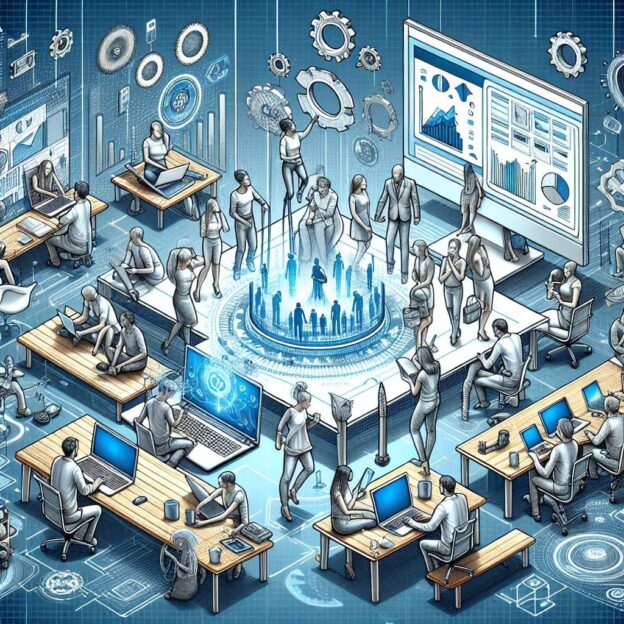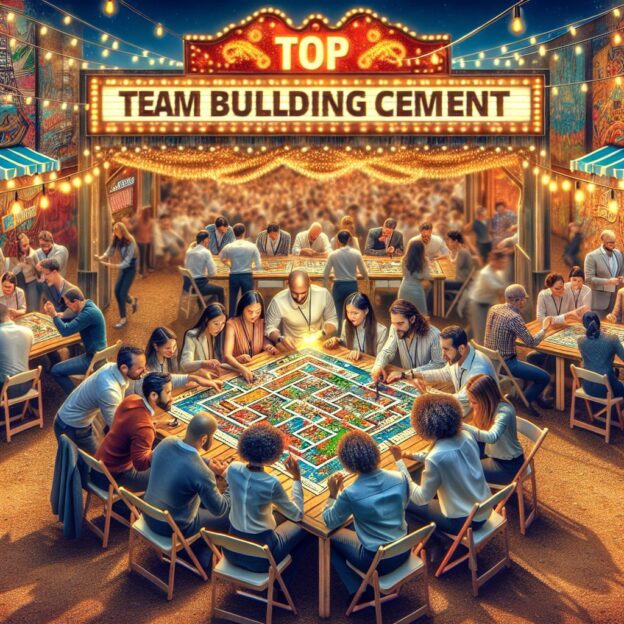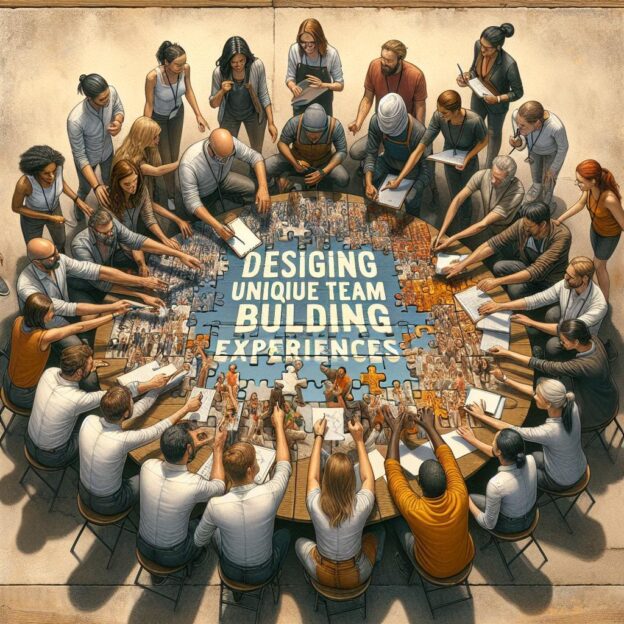In the dynamic world of human resources, success often depends on the strength of the team supporting you. As HR professionals navigate challenges and opportunities in today’s workplace, the importance of building strong teams cannot be overstated. From talent acquisition to employee development, collaboration is key to achieving organizational goals and fostering a positive work environment. In this article, we will explore strategies and best practices for HR professionals to cultivate strong, cohesive teams that drive success and innovation.
Why Team Building is Essential for HR Professionals
Team building is not just a fun activity, but a crucial element for HR professionals to excel in their roles. By fostering a strong sense of teamwork among employees, HR professionals can create a positive work environment, improve communication within the organization, and boost overall productivity.
One of the key benefits of team building for HR professionals is that it can help in building trust and rapport among team members. When employees trust each other and feel comfortable working together, they are more likely to collaborate effectively and achieve common goals. Team building activities such as group challenges, brainstorming sessions, and team-building exercises can help in breaking down barriers and creating a cohesive team.
- Enhances communication and collaboration
- Improves problem-solving skills
- Fosters creativity and innovation
Fostering Communication and Collaboration Within HR Teams
Creating a strong foundation of communication and collaboration within HR teams is crucial for achieving success in any organization. By fostering a culture of open dialogue and teamwork, HR professionals can work more effectively towards common goals and objectives. Encouraging regular meetings, brainstorming sessions, and team-building activities can help to strengthen bonds among team members and improve overall collaboration.
One way to boost communication within HR teams is to utilize technology tools such as Slack or Microsoft Teams, which allow for easy sharing of information and ideas in real-time. Additionally, establishing clear communication channels and ensuring that everyone has a voice in decision-making processes can help to create a more inclusive and cohesive team environment. By breaking down silos and promoting transparency, HR professionals can work together more efficiently and effectively to drive organizational success.
Developing Trust and Mutual Respect Among Team Members
Building trust and mutual respect among team members is crucial for creating a strong and cohesive work environment. When team members trust each other, they are more likely to collaborate effectively, communicate openly, and support each other in achieving common goals.
One way to develop trust within a team is to encourage open and honest communication. This can be achieved by creating a safe space for team members to share their ideas, concerns, and feedback without fear of judgment. Additionally, team building activities and exercises can help foster a sense of camaraderie and unity among team members.
By prioritizing the development of trust and mutual respect within a team, HR professionals can help create a positive and productive work environment where team members feel valued, supported, and motivated to perform at their best.
Strategies for Motivating and Engaging HR Employees
Are you looking to boost motivation and engagement among your HR employees? Building strong teams is key to creating a positive and productive work environment. By implementing effective strategies, you can inspire your HR professionals to excel in their roles and contribute to the overall success of your organization.
One effective strategy is to provide opportunities for professional development and growth. Encouraging your HR team members to attend workshops, conferences, and training sessions can help them enhance their skills and stay up-to-date with industry trends. Investing in their professional development shows that you value their contributions and are committed to their success.
Another way to motivate and engage HR employees is to foster a culture of collaboration and teamwork. Encouraging open communication, sharing ideas, and working together on projects can help build strong relationships among team members. When employees feel supported by their colleagues, they are more likely to be motivated to achieve their goals.
Building Diversity and Inclusion in HR Teams
When it comes to building strong HR teams, diversity and inclusion are key factors to consider. By bringing together individuals with different backgrounds, perspectives, and experiences, HR teams can create a more dynamic and innovative work environment.
One way to foster diversity and inclusion within HR teams is to actively recruit and retain employees from diverse backgrounds. This can include individuals of different races, genders, ages, sexual orientations, and abilities. By creating a team that reflects a variety of perspectives, HR professionals can better understand and address the needs of all employees.
Additionally, creating a culture of inclusion within the team is essential. This can involve promoting open communication, actively listening to all team members, and encouraging collaboration. By valuing and respecting the contributions of each team member, HR professionals can build a strong and cohesive team that is capable of tackling any challenge that comes their way.
Creating a Positive Work Environment for HR Professionals
When it comes to building strong teams within the HR department, it’s crucial to focus on creating a positive work environment. By fostering a culture of collaboration and support, HR professionals can thrive and excel in their roles. Encouraging open communication, celebrating wins, and providing opportunities for professional development are key aspects of creating a positive work environment.
One way to build a strong team is to encourage teamwork through collaborative projects and initiatives. By working together towards common goals, HR professionals can leverage each other’s strengths and skills, ultimately leading to greater success. Additionally, promoting a culture of inclusivity and diversity within the team can help foster creativity and innovation.
As HR professionals, building strong teams is not just a goal, it’s a necessity. By fostering a positive team culture, encouraging collaboration, and investing in the growth and development of each team member, we can create a powerhouse of talent that drives success for our organization. Remember, a team is only as strong as its weakest link, so let’s commit to strengthening our teams and unlocking their full potential. Together, we can achieve greatness.








